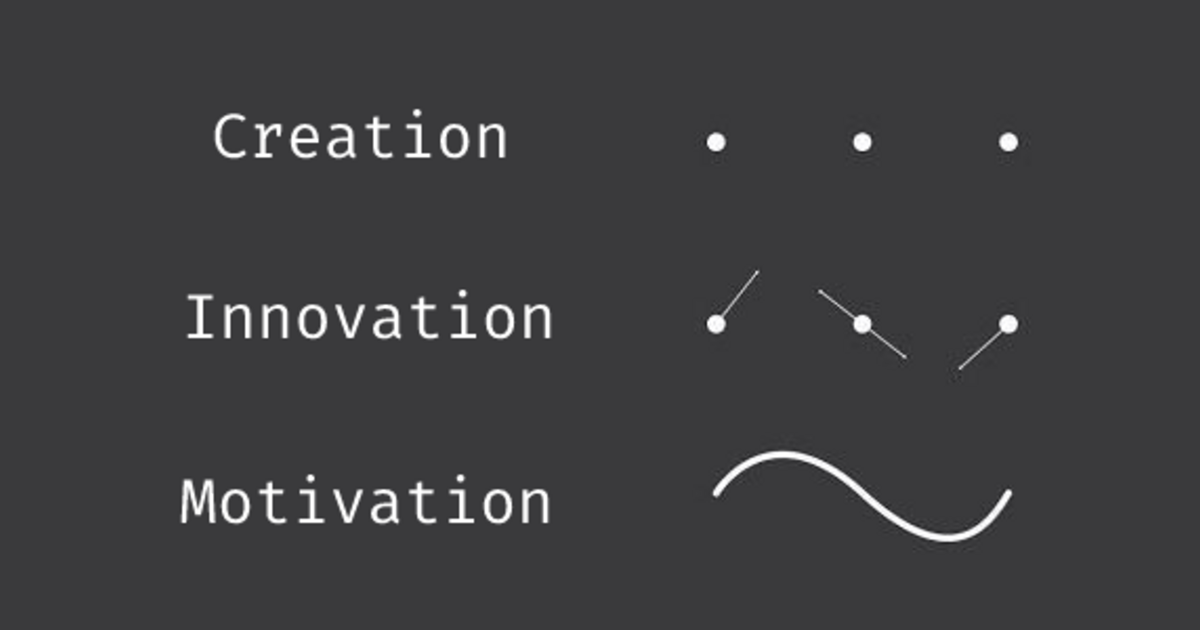Europe Says<p><a href="https://www.europesays.com/1749240/" rel="nofollow noopener noreferrer" target="_blank"><span class="invisible">https://www.</span><span class="">europesays.com/1749240/</span><span class="invisible"></span></a> Entering The Artificial General Intelligence Spectrum In 2025 <a href="https://pubeurope.com/tags/AGI" class="mention hashtag" rel="nofollow noopener noreferrer" target="_blank">#<span>AGI</span></a> <a href="https://pubeurope.com/tags/AI" class="mention hashtag" rel="nofollow noopener noreferrer" target="_blank">#<span>AI</span></a> <a href="https://pubeurope.com/tags/Altman" class="mention hashtag" rel="nofollow noopener noreferrer" target="_blank">#<span>Altman</span></a> <a href="https://pubeurope.com/tags/ArtificialGeneralIntelligence" class="mention hashtag" rel="nofollow noopener noreferrer" target="_blank">#<span>ArtificialGeneralIntelligence</span></a> <a href="https://pubeurope.com/tags/ArtificialIntelligence" class="mention hashtag" rel="nofollow noopener noreferrer" target="_blank">#<span>ArtificialIntelligence</span></a> <a href="https://pubeurope.com/tags/OpenAI" class="mention hashtag" rel="nofollow noopener noreferrer" target="_blank">#<span>OpenAI</span></a> <a href="https://pubeurope.com/tags/reasoning" class="mention hashtag" rel="nofollow noopener noreferrer" target="_blank">#<span>reasoning</span></a> <a href="https://pubeurope.com/tags/superintelligence" class="mention hashtag" rel="nofollow noopener noreferrer" target="_blank">#<span>superintelligence</span></a> <a href="https://pubeurope.com/tags/Sutskever" class="mention hashtag" rel="nofollow noopener noreferrer" target="_blank">#<span>Sutskever</span></a></p>
Recent searches
No recent searches
Search options
Only available when logged in.
c.im is one of the many independent Mastodon servers you can use to participate in the fediverse.

C.IM is a general, mainly English-speaking Mastodon instance.
Administered by:
Server stats:
2.8Kactive users
c.im: About · Status · Profiles directory · Privacy policy
Mastodon: About · Get the app · Keyboard shortcuts · View source code · v4.3.6
#sutskever
0 posts · 0 participants · 0 posts today
Chuck Darwin<p>“We’ve achieved peak data and there’ll be no more.”</p><p>OpenAI’s cofounder and former chief scientist, <br /><a href="https://c.im/tags/Ilya" class="mention hashtag" rel="tag">#<span>Ilya</span></a> <a href="https://c.im/tags/Sutskever" class="mention hashtag" rel="tag">#<span>Sutskever</span></a>, made headlines earlier this year after he left to start his own AI lab called <br />Safe Superintelligence Inc. </p><p>He has avoided the limelight since his departure but made a rare public appearance in Vancouver on Friday at the <br />Conference on Neural Information Processing Systems (NeurIPS).</p><p>“Pre-training as we know it will unquestionably end,” Sutskever said onstage. </p><p>This refers to the first phase of AI model development, <br />when a large language model learns patterns from vast amounts of unlabeled data <br />— typically text from the internet, books, and other sources. </p><p>During his NeurIPS talk, Sutskever said that, <br />while he believes existing data can still take AI development farther, <br />the industry is tapping out on new data to train on. </p><p>This dynamic will, he said, eventually force a shift away from the way models are trained today. </p><p>He compared the situation to fossil fuels: <br />just as oil is a finite resource, <br />the internet contains a finite amount of human-generated content.</p><p>“We’ve achieved peak data and there’ll be no more,” according to Sutskever. </p><p>“We have to deal with the data that we have. There’s only one internet</p><p>Next-generation models, he predicted, are going to “be agentic in a real ways.” </p><p>Agents have become a real buzzword in the AI field. </p><p>While Sutskever didn’t define them during his talk, they are commonly understood to be an autonomous AI system that performs tasks, makes decisions, <br />and interacts with software on its own.</p><p>Along with being “agentic,” he said future systems will also be able to reason. </p><p>Unlike today’s AI, which mostly pattern-matches based on what a model has seen before, <br />future AI systems will be able to work things out step-by-step in a way that is more comparable to thinking.</p><p>The more a system reasons, “the more unpredictable it becomes,” according to Sutskever. </p><p>He compared the unpredictability of “truly reasoning systems” to how advanced AIs that play chess “are unpredictable to the best human chess players.”</p><p>“They will understand things from limited data,” he said. </p><p>“They will not get confused.”</p><p>On stage, he drew a comparison between the scaling of AI systems and evolutionary biology, <br />citing research that shows the relationship between brain and body mass across species. </p><p>He noted that while most mammals follow one scaling pattern, hominids (human ancestors) show a distinctly different slope in their brain-to-body mass ratio on logarithmic scales.</p><p>He suggested that, just as evolution found a new scaling pattern for hominid brains, <br />AI might similarly discover new approaches to scaling beyond how pre-training works today.<br /><a href="https://www.theverge.com/2024/12/13/24320811/what-ilya-sutskever-sees-openai-model-data-training" target="_blank" rel="nofollow noopener noreferrer" translate="no"><span class="invisible">https://www.</span><span class="ellipsis">theverge.com/2024/12/13/243208</span><span class="invisible">11/what-ilya-sutskever-sees-openai-model-data-training</span></a></p>
Chuck Darwin<p>OpenAI has appointed Paul M. Nakasone, <br />a retired general of the US Army and a former head of the National Security Agency ( <a href="https://c.im/tags/NSA" class="mention hashtag" rel="tag">#<span>NSA</span></a> ), <br />to its board of directors, the company announced on Thursday. </p><p>OpenAI says Nakasone will join its Safety and Security Committee, which was announced in May and is led by CEO Sam Altman, “as a first priority.” </p><p>Nakasone will “also contribute to OpenAI’s efforts to better understand how AI can be used to strengthen cybersecurity by quickly detecting and responding to cybersecurity threats.”</p><p><a href="https://c.im/tags/Nakasone" class="mention hashtag" rel="tag">#<span>Nakasone</span></a> was nominated to lead the NSA by former President Donald Trump, and directed the agency from 2018 until February of this year. </p><p>Before Nakasone left the NSA, he wrote an op-ed supporting the renewal of Section 702 of the Foreign Intelligence Surveillance Act, the surveillance program that was ultimately reauthorized by Congress in April.</p><p>OpenAI board chair Bret Taylor said in a statement. “General Nakasone’s unparalleled experience in areas like cybersecurity will help guide OpenAI in achieving its mission of ensuring artificial general intelligence benefits all of humanity.”</p><p>Recent departures tied to safety at OpenAI include co-founder and chief scientist Ilya <a href="https://c.im/tags/Sutskever" class="mention hashtag" rel="tag">#<span>Sutskever</span></a>, who played a key role in Sam Altman’s November firing and eventual un-firing, <br />and Jan <a href="https://c.im/tags/Leike" class="mention hashtag" rel="tag">#<span>Leike</span></a>, who said on X that “safety culture and processes have taken a backseat to shiny products.”<br /><a href="https://www.theverge.com/2024/6/13/24178079/openai-board-paul-nakasone-nsa-safety" target="_blank" rel="nofollow noopener noreferrer" translate="no"><span class="invisible">https://www.</span><span class="ellipsis">theverge.com/2024/6/13/2417807</span><span class="invisible">9/openai-board-paul-nakasone-nsa-safety</span></a></p>
ExploreLive feeds
Mastodon is the best way to keep up with what's happening.
Follow anyone across the fediverse and see it all in chronological order. No algorithms, ads, or clickbait in sight.
Create accountLoginDrag & drop to upload

